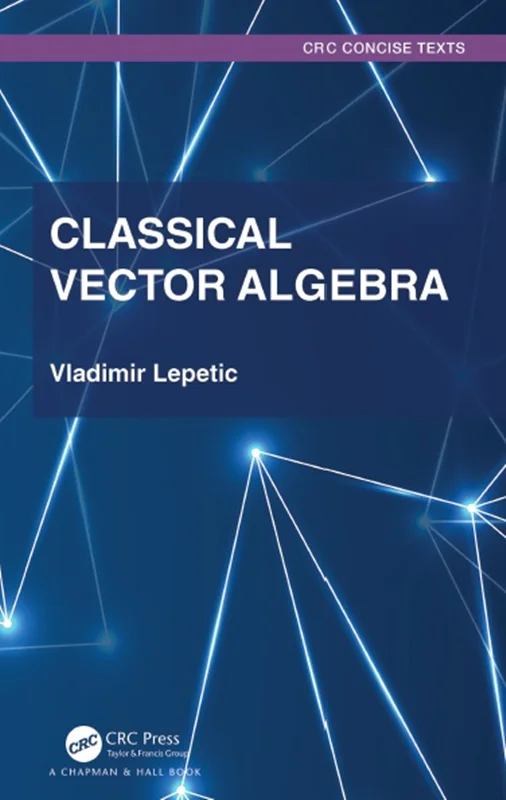Classical Vector Algebra
Vladimir Lepetic, 9781032380995, 9781003343486, 9781032381008, 9781032380995, 9781003343486, 978-1032380995, 978-1032381008, 1032380993, 1032381000, B0BKSBY52F
Every physicist, engineer, and certainly a mathematician, would undoubtedly agree that vector algebra is a part of basic mathematical instruments packed in their toolbox.
Classical Vector Algebra should be viewed as a prerequisite, an introduction, for other mathematical courses dealing with vectors, following typical form and appropriate rigor of more advanced mathematics texts.
Vector algebra discussed in this book briefly addresses vectors in general 3-dimensional Euclidian space, and then, in more detail, looks at vectors in Cartesian 3 space. These vectors are easier to visualize and their operational techniques are relatively simple, but they are necessary for the study of Vector Analysis. In addition, this book could also serve as a good way to build up intuitive knowledge for more abstract structures of -dimensional vector spaces.
Definitions, theorems, proofs, corollaries, examples, and so on are not useless formalism, even in an introductory treatise -- they are the way mathematical thinking has to be structured. In other words, "introduction" and "rigor" are not mutually exclusive.
The material in this book is neither difficult nor easy. The text is a serious exposition of a part of mathematics students need to master in order to be proficient in their field.


